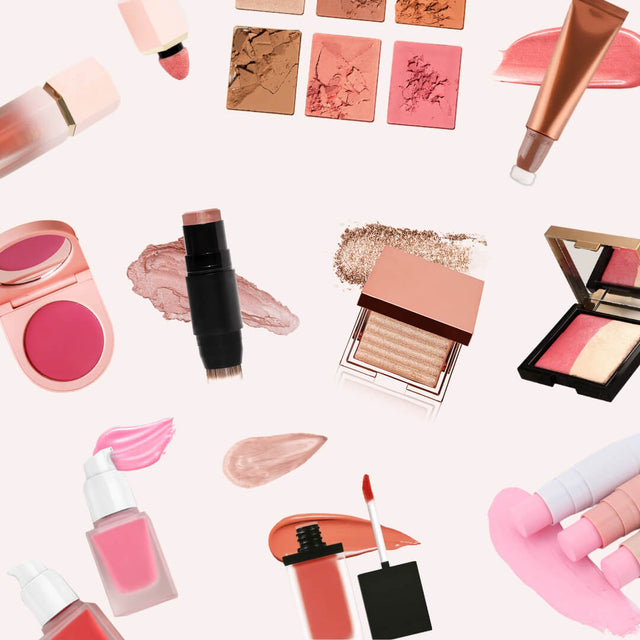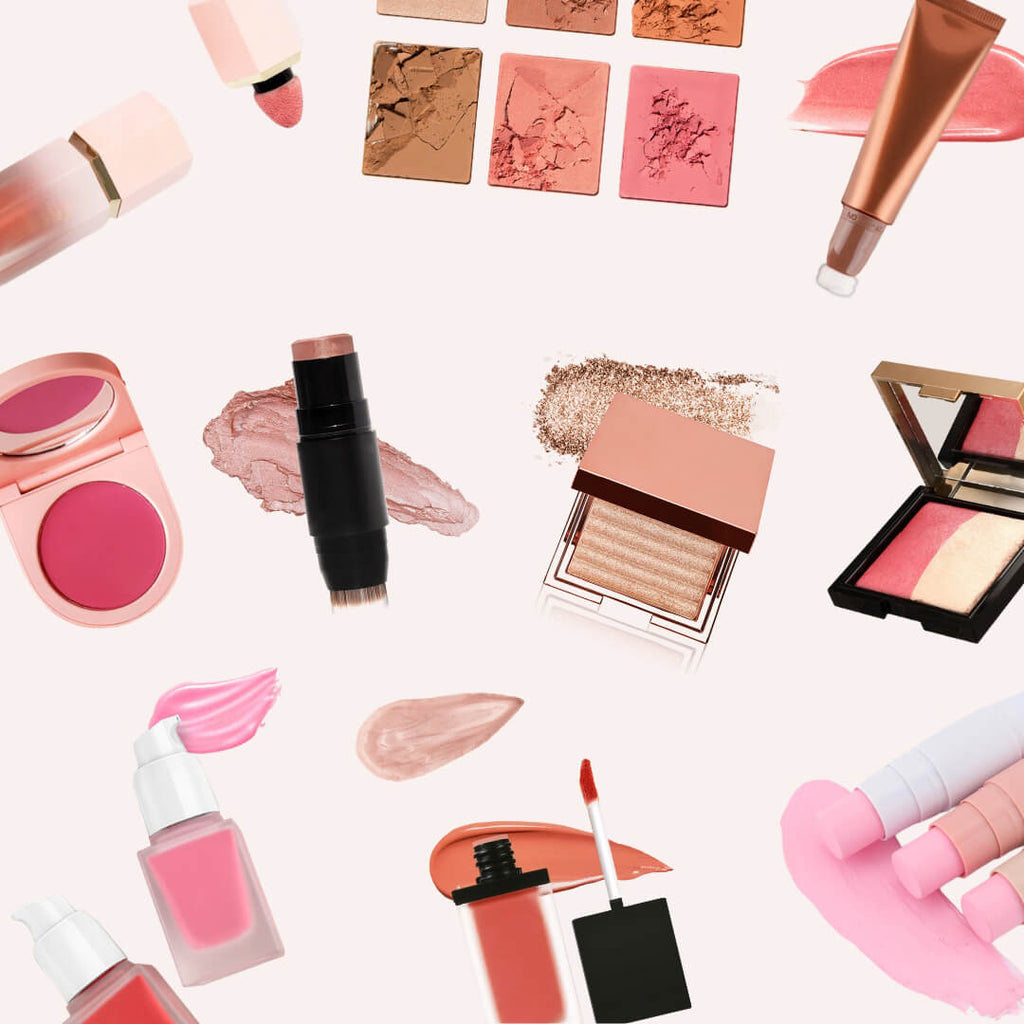Begrip van de verschillen, uitdagingen en kansen voor schoonheidsmerken
Inzichten in groene schoonheidsproductie
Deskundige begeleiding voor cosmeticamerken die veganistische en biologische productontwikkeling navigeren
Introductie
Als cosmeticafabrikant ontvangen we veel vragen van merken die veganistische of biologische producten willen ontwikkelen. Hoewel deze termen vaak door elkaar worden gebruikt in consumentenmarketing, vertegenwoordigen ze fundamenteel verschillende concepten in cosmetische formulering en productie. Het begrijpen van deze verschillen is cruciaal voor het nemen van weloverwogen beslissingen over uw productlijnen, vooral bij het werken met beperkte minimale bestelhoeveelheden (MOQ's).
Deze uitgebreide gids onderzoekt de belangrijkste verschillen tussen veganistische en biologische cosmetica vanuit het perspectief van een fabrikant, met de nadruk op praktische overwegingen voor merken van elke omvang.
Definitie van veganistische en biologische cosmetica
Wat zijn veganistische cosmetica?
Veganistische cosmetica bevatten geen ingrediënten of bijproducten van dierlijke oorsprong. Dit betekent dat formuleringen veelvoorkomende cosmetische ingrediënten zoals:
- Bijenwas
- Honing
- Lanoline
- Karmijn (rood pigment uit insecten)
- Collageen afkomstig van dieren
Belangrijk is dat veganistische producten nog steeds synthetische of chemisch bewerkte ingrediënten kunnen bevatten.
Wat zijn biologische cosmetica?
Biologische cosmetica richten zich op de landbouwbron en verwerking van ingrediënten. Ze moeten planten bevatten die zijn geteeld zonder:
- Synthetische pesticiden
- Chemische meststoffen
- Genetisch gemodificeerde organismen (GGO's)
- Irradiatie
Biologische certificering vereist naleving van strikte normen gedurende de hele productie en vereist vaak een minimumpercentage biologische ingrediënten (meestal 95% in de VS).
Vergelijkingstabel van belangrijkste verschillen
| Aspect | Veganistische cosmetica | Biologische cosmetica |
|---|---|---|
| Kernprincipe | Geen ingrediënten van dierlijke oorsprong | Ingrediënten geteeld zonder synthetische pesticiden/meststoffen |
| Dierproeven | Altijd dierproefvrij (geen dierproeven) | Kan wel of niet dierproefvrij zijn |
| Synthetische ingrediënten | Kan synthetische ingrediënten bevatten | Beperkt synthetische ingrediënten toegestaan |
| Certificeringseisen | Minder gestandaardiseerd; verschillende certificerende instanties | Strikte, gestandaardiseerde certificeringen (USDA, COSMOS, Ecocert) |
| Prijsniveau | 10-30% premie boven conventionele cosmetica | 30-100% premie boven conventionele cosmetica |
| MOQ-vereisten | Vaak lager (500-1.000 eenheden) | Meestal hoger (1.000-5.000 eenheden) |
| Kleurkeuzes | Uitgebreid; gebruikt synthetische kleurstoffen | Beperkt; afhankelijk van natuurlijke minerale pigmenten |
| Inkoop van grondstoffen | Gemakkelijker, meer consistente levering | Complex, seizoensgebonden variaties mogelijk |
| Houdbaarheid | Meestal langer (1-3 jaar) | Vaak korter (6-18 maanden) |
| Consumentenperceptie | Ethische keuze | Gezondheids- en milieukeuze |
Overwegingen bij grondstoffen
Uitdagingen bij veganistische formuleringen
Veganistische cosmetica vervangen ingrediënten van dierlijke oorsprong door plantaardige of synthetische alternatieven. Bijvoorbeeld:
- Bijenwas wordt vervangen door candelillawas of rijstzemelwas
- Lanoline wordt vervangen door sheaboter of cacaoboter
- Carmine (rood pigment) wordt vervangen door synthetische rode kleurstoffen of plantaardige alternatieven
Deze vervangingen kunnen soms de textuur, toepassing of prestatiekenmerken beïnvloeden, wat zorgvuldige reformulering vereist.
Complexiteiten bij biologische inkoop
Biologische ingrediënten moeten bij de bron gecertificeerd zijn, wat traceerbaarheid door de hele toeleveringsketen vereist. Volgens experts moeten "biologische huidverzorgingsproducten gemaakt zijn van natuurlijke plantaardige ingrediënten, maar niet alle plantaardige huidverzorging kan biologisch genoemd worden." Dit betekent:
- Documentatievereisten zijn uitgebreid
- Consistentie per batch kan variëren door agrarische factoren
- Tekorten in de aanvoer kunnen optreden door seizoensgebonden variaties
Certificeringsprocessen
Vegan Certificering
Vegan certificering richt zich voornamelijk op verificatie van ingrediënten:
- Documentatiebeoordeling van alle ingrediënten
- Audits van de toeleveringsketen om afwezigheid van dierlijke ingrediënten te verifiëren
- Productieprocescontroles om kruisbesmetting te voorkomen
Populaire certificeringen zijn onder andere Vegan Society, PETA's Beauty Without Bunnies en Leaping Bunny.
Biologische Certificering
Biologische certificering is uitgebreider en regiogebonden:
- USDA Organic: Vereist minimaal 95% biologische inhoud
- COSMOS Standard: Internationale norm met twee niveaus (Biologisch en Natuurlijk)
- Ecocert: Europees keurmerk met vergelijkbare eisen
Kleurkeuzes en Beperkingen
Kleurmogelijkheden voor veganistische producten
Veganistische cosmetica hebben vrijwel onbeperkte kleurmogelijkheden omdat ze synthetische kleurstoffen kunnen gebruiken die levendige, consistente tinten leveren. Deze omvatten:
- FD&C kleurstoffen (synthetisch maar veganistisch)
- Minerale pigmenten (ijzeroxiden, mica)
- Ultra-lichte neonkleuren en onconventionele tinten
Beperkingen in biologische kleuren
Biologische cosmetica hebben beperkte kleurkeuzes vanwege beperkingen op synthetische kleurstoffen. Het palet bestaat voornamelijk uit:
- Minerale kleuren (ijzeroxiden, chroomoxiden)
- Plantaardige pigmenten (annatto, kurkuma, biet)
- Mica-gebaseerde parelmoereffecten
Deze natuurlijke opties resulteren vaak in meer gedempte, aardse tinten in plaats van levendige kleuren.
Prijsstructuren
Prijsstelling van veganistische producten
Veganistische producten vragen doorgaans een 10-30% prijsopslag ten opzichte van conventionele cosmetica. De hogere kosten komen door:
- Gespecialiseerde plantaardige ingrediënten (vaak duurder dan dierlijke alternatieven)
- Certificeringskosten (indien formele certificering wordt nagestreefd)
- O&O voor reformulering
Prijsstelling van biologische producten
Biologische producten hebben een hogere 30-100% prijsopslag vanwege uitgebreidere eisen:
- Biologische ingrediënten kosten aanzienlijk meer dan conventionele
- Certificeringsprocessen zijn uitgebreider en duurder
- Kleinere batchproductie vaak vereist
- Kortere houdbaarheid die mogelijk de afvalkosten verhoogt
Uitdagingen en oplossingen voor MOQ
Realiteiten van minimale bestelhoeveelheid
Voor private label en aangepaste formuleringen zijn MOQs aanzienlijk anders:
| Producttype | Typisch MOQ-bereik | Factoren die MOQ beïnvloeden |
|---|---|---|
| Veganistische cosmetica | 500-2.000 eenheden | Complexiteit van formule, verpakkingscomponenten |
| Biologische cosmetica | 1.000-5.000 eenheden | Beschikbaarheid van biologische ingrediënten, certificeringseisen |
Strategieën voor kleine MOQs (50-100 eenheden)
Voor merken die zeer kleine productieaantallen (50-100 eenheden) zoeken, kunnen verschillende benaderingen helpen:
- Standaard voorraadformules: Gebruik bestaande gecertificeerde formules in plaats van maatwerkontwikkeling
- Eenvoudige verpakking: Kies standaardverpakkingen om component MOQs te verminderen
- Groepsaankoop: Werk samen met andere merken om bestellingen te combineren
- Vooraf gemaakte basissen: Gebruik gecertificeerde basissen met minimale aanpassing
- Pilotprogramma's: Begin met grotere MOQ's zodra formuleringen zijn afgerond
Aanbevelingen voor Kleine Merken
Voor opkomende merken met beperkte budgetten en kleine MOQ-vereisten raden we doorgaans aan:
Begin met Veganistische Formuleringen
Veganistische producten bieden verschillende voordelen voor kleine merken:
- Lagere MOQ-vereisten (500+ eenheden versus 1.000+ voor biologisch)
- Lagere certificeringskosten en eenvoudigere processen
- Breder scala aan kleur- en formuleopties
- Groeiende consumenteninteresse in diervriendelijke producten
Later overstappen op biologisch
Zodra ze gevestigd zijn, kunnen merken uitbreiden naar biologische producten door:
- Gebruik maken van de bestaande klantenbasis om hogere prijsniveaus te ondersteunen
- Beginnen met 1-2 hero-producten in plaats van volledige collecties
- Gebruik van hybride formules (gedeeltelijk biologisch gehalte) om kosten te verlagen
- Gefaseerde certificering naarmate het volume toeneemt
Toekomstige Trends in Veganistische en Biologische Cosmetica
De schoonheidsindustrie blijft zich ontwikkelen met verschillende opkomende trends:
- Regelgevende Standaardisatie: Inspanningen om biologische normen wereldwijd te harmoniseren via organisaties zoals COSMOS
- Waterloze Formuleringen: Vermindering van watergehalte om effectiviteit en duurzaamheid te verbeteren
- Blue Beauty: Focus op bescherming van waterecosystemen naast biologische principes
- Geüpcyclede Ingrediënten: Gebruik van bijproducten uit de voedingsindustrie om afval te verminderen
- Transparantie Technologie: Blockchain en andere technologieën voor verificatie van de toeleveringsketen
Conclusie
De keuze tussen veganistische en biologische cosmetica vereist een afweging van ethische waarden, marktpositionering, praktische zakelijke overwegingen en budgettaire beperkingen. Hoewel biologische cosmetica aantrekkelijke marketingclaims bieden, brengen ze aanzienlijke uitdagingen met zich mee voor kleine merken vanwege hogere MOQ's, complexe certificeringsprocessen en aanzienlijke kostenpremies.
Voor de meeste opkomende merken vertegenwoordigt beginnen met veganistische formuleringen een toegankelijker instappunt in de bewuste schoonheidsmarkt. Deze aanpak stelt merken in staat hun marktpositie te vestigen, klantloyaliteit op te bouwen en geleidelijk uit te breiden naar biologische producten naarmate de middelen dat toelaten.
Ongeacht welke weg u kiest, is transparantie naar consumenten over de samenstelling en certificeringen van uw producten essentieel om vertrouwen op te bouwen in het snel veranderende schoonheidslandschap.
Over Onze Productiediensten
In onze productiefaciliteit zijn we gespecialiseerd in het creëren van hoogwaardige veganistische en biologische cosmetica die voldoen aan de hoogste normen van veiligheid en effectiviteit. Met onze expertise in formulering en productie helpen we merken producten te ontwikkelen die klanten met bewuste waarden kunnen vertrouwen.
Onze Diensten
- Veganistische Formuleringen: Ontwikkeling van diervriendelijke productformules
- Biologische Certificering: Begeleiding bij biologische certificeringsprocessen
- Duurzame Inkoop: Ethische en duurzame inkoop van ingrediënten
- Opties voor Lage MOQ: Kleine batchproductie voor opkomende merken
- Aangepaste Ontwikkeling: Op maat gemaakte formuleringen voor uw specifieke behoeften
Klaar om uw veganistische of biologische productlijn te ontwikkelen?
Neem vandaag nog contact met ons op om uw project te bespreken en een gepersonaliseerde offerte te ontvangen.
E-mail: info@cosmeticmanufacturer.comOf leer meer over onze diensten en mogelijkheden
Bezoek Onze Website

